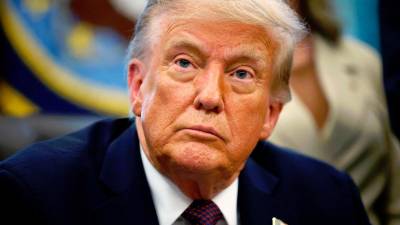STRASBOURG: The European Union will adopt a strategy similar to US President Donald Trump’s tariff policies by proposing a significant increase in steel import levies.
The EU executive will recommend doubling tariffs on steel imports to 50% while nearly halving the import volumes permitted before these duties apply.
European industry chief Stephane Sejourne stated that these measures aim to rescue the continent’s struggling steel sector from potential collapse.
“We’re not doing Trump-style politics,“ Sejourne told reporters ahead of presenting the plan at the European Parliament in Strasbourg, France.
The EU’s approach nevertheless mirrors the 50% tariffs implemented by Trump to block inexpensive Chinese metals from entering the American market.
This proposal must receive approval from EU member states and parliament to permanently replace the current safeguard scheme.
Sejourne emphasized that Europe’s sovereignty is at stake as the only major market remaining so open to steel imports.
EU trade commissioner Maros Sefcovic hopes to collaborate with Washington to address Chinese overcapacity through coordinated efforts.
Sefcovic noted that both European and American steel and aluminium industries face identical challenges following the US-EU tariff agreement in July.
The EU is pursuing a “metals alliance” with the United States to protect their economies from global overcapacity issues.
Steel remains crucial for renewable energy equipment and electric vehicles as the EU advances its industrial decarbonization agenda.
Eurofer president Henrik Adam urged immediate and decisive action to prevent widespread shutdowns across the EU steel industry and its supply chains.
Belgian trade unions have already welcomed what they describe as an ambitious and necessary plan before its formal announcement.
ArcelorMittal, the world’s second-largest steelmaker, saw its shares increase by 9% over the past week in anticipation of these measures.
The European steel sector currently employs approximately 300,000 people with nearly 100,000 jobs lost during the past fifteen years.
Eurofer warns that the ongoing crisis threatens these workers along with an additional 2.3 million indirect employment positions. – AFP
